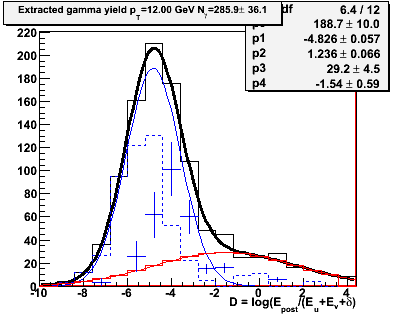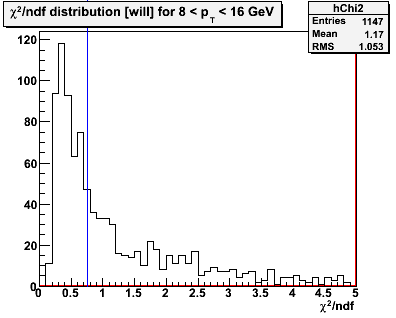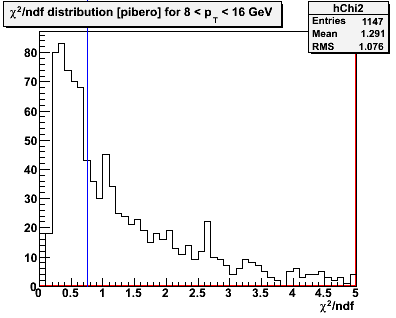Compare conversion and chi^2 methods for extracting yields
Updated on Fri, 2008-04-11 14:51. Originally created by jwebb on 2008-04-11 14:24.



Abstract: We compare yields extracted using the EEmc Gammas via conversion method, systematics II with estimates based on a chi^2/ndf analysis of the SMD response.
1.0 Event Sample and Cuts
Use the Gamma tree production in the silver run list.
Cuts:
1) gamma candidate pT > 8 GeV in the EEmc
2) gamma is 90% isolated (90% of ET summed w/in R<0.3 is in the gamma candidate).
3) charged particle veto (Epre1 shows no energy summed over R<0.3).
Figure 1 -- Yields extracted using the conversion method, plotted vs D. Blue data points indicate extracted gamma yield. Dashed blue line represents EM background. Red line hadronic background.

2.0 Shower Shape for chi2 Comparison
Pibero worked up a shower shape for events w/ pT > 8.0 GeV... but this produced chi2 values which were far too large. So I'm falling back to an older shower shape,
Figure 2 -- chi2/ndf distribution for the above events. The chi2 is calculated by taking a shower shape, derived by summing single gammas identified as part of an eta --> 2 gamma decay. At left are "Will's" photons, at right are "Pibero's". Summing the events below the blue line yields 501 events for Will's shape, 436 for Pibero's.


»
- jwebb's blog
- Login or register to post comments
